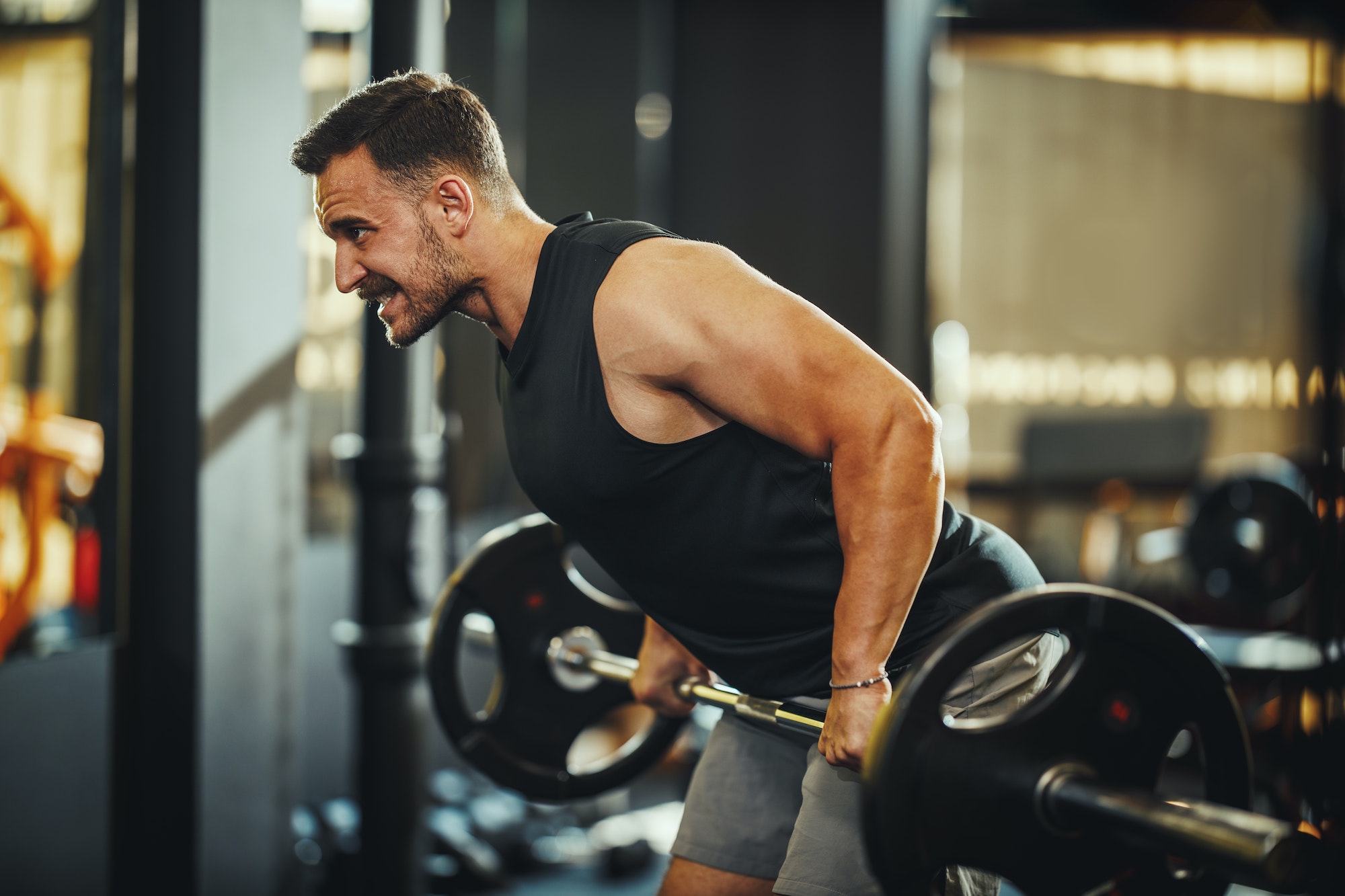For this article, we interviewed personal trainer and physical therapist Clyde Staley, PT, DPT, CSCS. Clyde is a Doctorate of Physical Therapy and a Certified Strength and Conditioning Specialist, he has over 6 years of experience training athletes and clients to increase hypertrophy and perform their best in their sport.
Most athletes know that to maximize hypertrophy, they must consistently strength train and eat enough protein.
What many athletes don’t realize is that the process of hypertrophy occurs when they’re outside the gym recovering.
Athletes often hold themselves back and gain muscle at a slower and less optimal rate than they could.
How can athletes maximize hypertrophy between workouts?
Hypertrophy between workouts can be maximized by implementing a thorough recovery plan into their program. Emphasizing adequate protein intake, getting enough sleep, drinking enough water, and managing stress levels are key to maximizing hypertrophy outside of the gym. Without proper recovery, muscle hypertrophy occurs at a much slower rate.
While strength training is the stimulus for the process of hypertrophy, the recovery process is where hypertrophy occurs.
Athletes who don’t prioritize their recovery are not going to gain muscle as quickly or efficiently as they want to.
In fact, not recovering properly may lead to muscle breakdown and increase the risk of injury if the athlete isn’t careful.
Key Takeaways:
| Eating Enough Protein | Improves protein synthesis and muscle recovery between workouts |
| Getting Enough Sleep | Time for the body to heal and repair- when hypertrophy occurs |
| Drinking Enough Water | Improves blood flow during recovery and concentration during the session |
| Managing Stress | Key for anabolic hormone regulation |
Eating Enough Protein
Proteins are the building blocks of our bodies and are essential to ensuring our muscles work and grow properly. Eating enough protein is critical to ensuring our muscles grow and repair properly.
During a strength training session, our muscle fibers break down as a result of the excess load placed on them. This triggers a cascade of events to facilitate hypertrophy and prepare the muscles for the next session.
The key components of this growth and repair process are proteins. Proteins are made up of amino acids, which are the building blocks of our muscles and the processes that make them.
The protein recommended dietary allowance (RDA) is .8 grams per kilogram of bodyweight. However, for sufficient hypertrophy to occur, the recommended protein intake per day is 1.2 to 1.8 grams per kilogram of body weight.
Getting Enough Sleep
Sleep is arguably the most important factor for maximizing hypertrophy between workouts. Sleep is when our bodies undergo their growth and repair processes, allowing us to recover from the last workout and prepare for the next one.
Sleep and hypertrophy have a closely related correlation- athletes who get more sleep experience more muscle growth, and athletes who don’t get enough sleep don’t experience muscle growth.
Not getting enough sleep means our bodies don’t get enough time to adequately recover from the previous workout.
The result is a slower rate of hypertrophy, or in some cases, “atrophy” occurs.
Lack of sleep also affects performance in training sessions for up to 2 full days following that night, and the effects are compounded over time with chronic sleep deprivation.
Athletes need to be getting 8-9 hours of sleep to maximize hypertrophy, but the absolute minimum for effective muscle recovery and performance is 7 hours per night.
Staying Hydrated
Water is the most important component we can consume to ensure our bodies function properly. Not drinking enough water is directly related to poor muscle protein synthesis and a slower rate of hypertrophy.
Drinking enough water sounds fairly obvious, but many athletes don’t realize how important water is until they’re dehydrated.
Water is the main component of blood, and drinking enough water promotes better blood viscosity for transport to our muscles during recovery.
Not drinking enough water means there is a slower rate of blood flow to recovering muscles, leading to slower rates of muscle protein synthesis and a slower rate of hypertrophy.
Not drinking enough water between workouts will also negatively affect how you perform during the session.
The effects of dehydration can affect hypertrophy in several different ways, including:
- Muscle weakness
- Muscle cramping
- Irritability and inability to concentrate during a workout
- Fatigue
- Low blood pressure/lightheadedness
- Increased heart rate
The daily recommended water intake is about a gallon of water per day. To maximize hypertrophy, water intake can be timed around a training session.
| Timing | Amount of Water Intake |
| Within 4 Hours of a Session | At least 16-20 oz of water |
| During a Session | 8 oz of water per 30 minutes of intense training |
| Within 1-2 Hours After a Session | At least 16-20 oz of water |
Managing Stress
Reducing stress is difficult to measure but is one of the most influential factors for maximizing hypertrophy between workouts. Too much stress can impair recovery and slow hypertrophy.
Muscle hypertrophy occurs via protein synthesis, which is reliant on hormones to regulate the process.
Hormones such as growth hormone, insulin-like growth factors (IGFs), and testosterone are critical for hypertrophy because they are anabolic hormones- hormones that build muscle tissue.
Increased stress levels from factors such as career, personal life, financial life, etc. adversely affect the production and utilization of these hormones. Without these hormones, hypertrophy occurs at a much slower rate.
Stress also contributes to an increase in a different hormone: cortisol. Cortisol is a catabolic hormone, which means it breaks down muscle tissue.
Increased catabolic hormones like cortisol, along with decreases in anabolic hormones, can lead to muscle atrophy, or breakdown.
Finding ways to manage stress levels, such as meditation, social support, fun activities, and emotional regulation practices, can reduce the effects of stress and improve hypertrophy between workouts.

Austin is the author of loveatfirstfit.com and a personal trainer with extensive knowledge in nutrition. Austin is passionate about helping others to find a suitable healthy lifestyle and feel good about themselves. Austin’s goal is to help people push their limits and achieve their physical performance.


